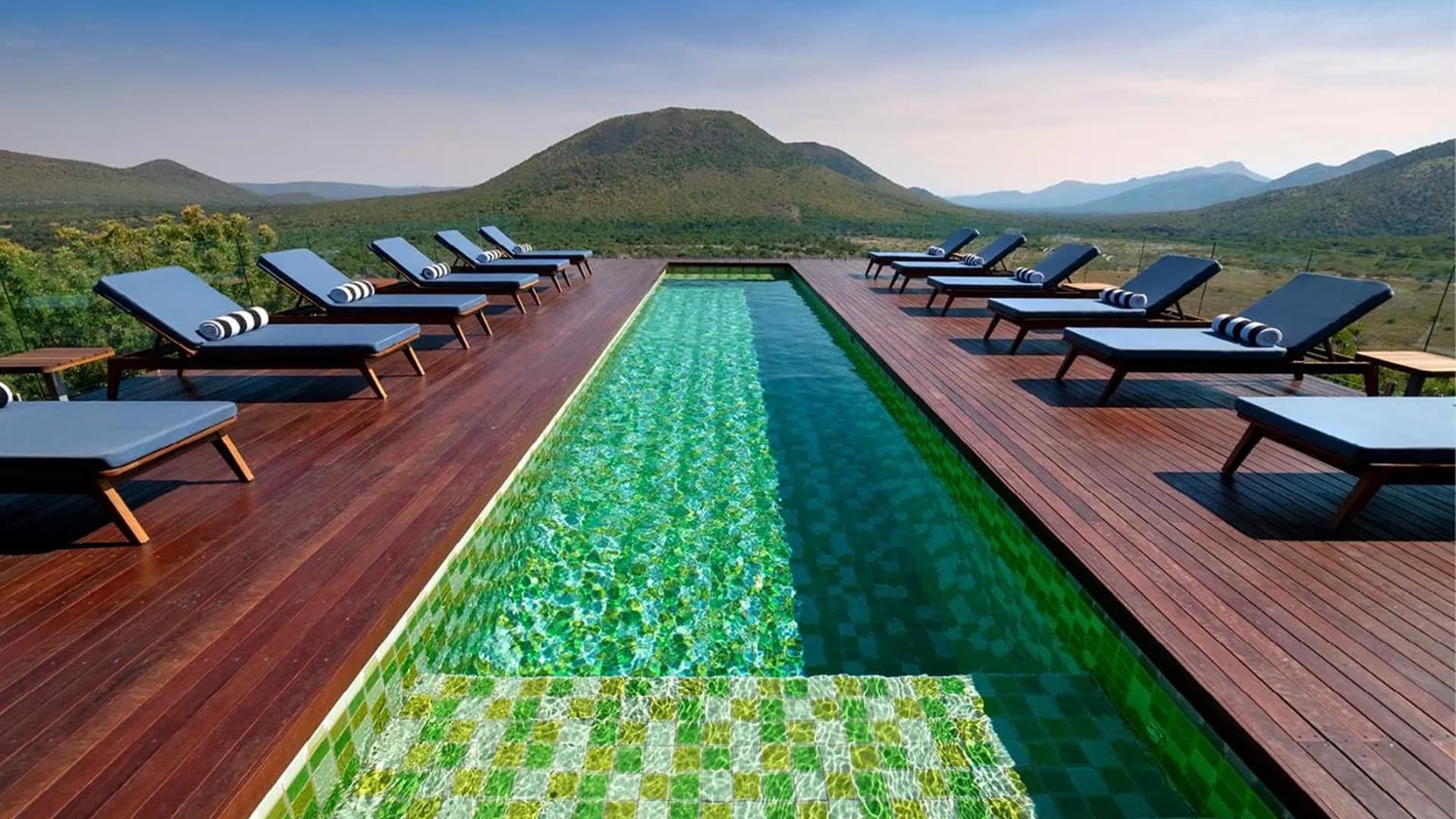Luxury safari goers were once all about spotting lions, leopards, elephants, buffalo and rhinos - albeit while staying in fancier tents and dining on gourmet food.
But that is changing.
"Safaris are no longer just about the 'Big Five'," said Lori Cohen, a writer who covers luxury safaris. "People have limited free time in their lives, and they really want to use that time to do something special and transformative."
"They want personal attention (and) unique experiences," she said. They want "their emotions spoken."
As a result, the definition of luxury tourism in Africa is changing, said Olivia Gradidge, marketing manager at exhibition organizer RX Africa.
"While top-notch amenities remain important, the focus has grown to include unique and exclusive experiences," she said. "Travellers, especially those seeking luxury, are increasingly driven by a desire for novelty and exclusivity. They crave experiences they have not encountered before."
Samburu cultural dance organized by Loisaba Lodo Springs in Kenya, part of the Elewana Collection.
Source: Harriet Akinyi
This could be a walk with a veterinarian who works with the gorillas, or a look at how a neighboring community lives, Cohen said.
For others, it's an experience that fits their interests, such as photography or the chance to track specific animals, or a helicopter excursion to a remote area, Gradidge said. Increasingly, travelers are interested in "behind-the-scenes access where guests can participate in conservation activities, meet researchers, or learn about anti-poaching efforts," she said.
"These experiences ... (transform) the traditional safari from passive wildlife observation to an active and engaging adventure," she said.
How luxury safaris are changing
The luxury safari market is expected to grow from $1.7 billion in 2023 to $1.98 billion by 2032according to market research company Business Research Insights.
A 2024 trend report published by the travel website Africa Travel Week noted the rise of "7+ star experiences" and "ultimate luxury" in Africa. But the Discover Africa website notes that luxury travelers are moving beyond opulence to a new era of "conscious luxury,” which combines sustainable safari tourism and customized itineraries.
Photo taken during a game drive in Kenya's Emboo New Generation Safari Camp.
Source: Harriet Akinyi
Kgomotso Ramothea, CEO of the African Travel and Tourism Association, said there is more interest in walking and trekking safaris, which produce less carbon emissions than traditional safaris.
Murielle Mignot-Vegezzi, head of product at luxury safari company Discover Africa, said destinations such as Kenya, Tanzania, South Africa and Botswana remain top choices.
Babohi in Qwabi Private Game Reserve in South Africa.
Source: Harriet Akinyi
But "return visitors are looking for more involved experiences, with multi-country safari itineraries instead of single-country trips."
This can increase prices. The price of booking a luxury safari will reach $9,600 per person in 2024, she said.
How much does a safari cost?
Basic and midrange safaris
A basic African safari ranges from $100 to $300 per person per day.
This budget usually pays for shared game drives set at specific times of the day. Wildlife sightings can be limited compared to luxury safaris in private game reserves or conservancies.
Meals are also quite basic, compared to high-end safari camps.
For $300-$600 per day, travelers can expect excellent service and fewer fellow guests. There are often additional activities such as guided bush walks, night drives and experienced rangers.
In Kenya, camps that fall into this category include Mara Intrepids Tented Camp, Ashnil Mara Camp, Tangulia Mara Camp and Kitumo Mara Lodges.
There is also Tanzania's Serengeti Sopa Lodge; South Africa's Sabi River Sun Resort in the Kruger National Park; Botswana's Moremi Crossing; and Namibia's Sossus Dune Lodge in the Namib desert.
Luxury safaris
These lodges usually start around $600 per person per day and provide luxury accommodations, private game safaris, gourmet meals and personalized services such as private guides and butlers.
Nice place, Richard Branson's safari camp in Kenya.
Source: Harriet Akinyi
Angama Mara, Emboo – the new generation Safari camp, Richard Branson's Mahali Mzuri and JW Marriott Masai Mara Lodge are examples of luxury safari camps in Kenya's Maasai Mara. There is Finch Hattons near Tsavo National Park and the Angama brand has another luxury camp in Amboseli National Park. The Elewana Collection has camps in pristine locations in Kenya and Tanzania, as well as Asilia Camps, which also runs safaris in Uganda.
In Tanzania, there is Singita Sabora Tented Camp and Four Seasons Safari Lodge Serengeti, the latter with views of the Serengeti, plunge pools and an infinity pool.
Tent at the JW Marriott Masai Mara Lodge.
Source: Harriet Akinyi
South Africa has plenty of safaris at this price point too, from the Royal Malewane to the Babohi at Qwabi Private Game Reserve, a distinguished lodge exclusively for adults.
Ultra-luxury safaris
To get the ultimate safari experience, be prepared to pay anywhere from $1,500 to $10,000 per day to enjoy meticulously designed activities, extraordinary amenities and exceptional services.
In Rwanda, lodges such as Bisate Lodge and One & Only Gorilla's Nest are located near the Volcanoes National Park, home to the country's mountain gorillas. These lodges offer gourmet meals in stunning settings, private gorilla trekking excursions with expert guides and remote locations, ensuring an intimate experience for those seeking seclusion.
There is also Tanzania's Singita Grumeti and South Africa's andBeyond Phinda Private Game Reserve, which offers luxurious bush villas with private plunge pools, private game drives and walks with trackers.
